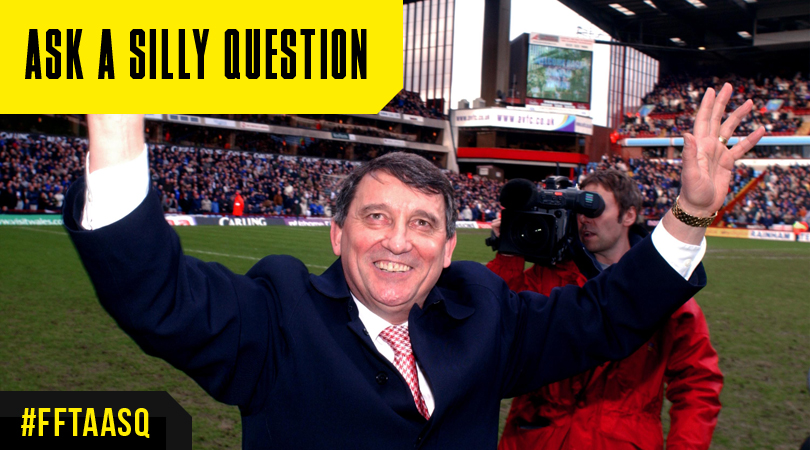Farewell, Graham Taylor: a genuine English great who flew in the face of indignity
The former Watford, Aston Villa and England manager has died aged 72. FourFourTwo.com’s global digital editor Gary Parkinson reflects on a man who never stopped loving the game – even when others tried their hardest to degrade him
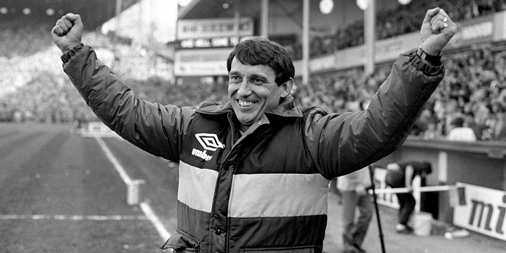
Imagine being the most derided person in the country. Catcalled, abused in your workplace, told to leave your job by millions of self-appointed experts, while the gleeful gutter press digitally manipulate images of your face to ridicule you and compare you to root vegetables.
Most people might get a bit bitter. But most people aren’t Graham Taylor.
It’s a shame that Taylor, who has died of a heart attack at the age of 72, will be remembered as a poor England manager. Like presidents and prime ministers, holders of that role will always be judged principally on their performance in that great office of state – and the vast majority will be deemed failures. But Taylor was more than that.
As a human being, he was much more. In death, most people are remembered politely, and the tweets have been piling up, but Taylor was regarded with unwavering fondness by all who met him. When he smilingly submitted to a FourFourTwoOne-on-One in 2005, the interviewer – a self-confessed cynic – had his hard hack’s heart melted by Taylor’s combination of manners, openness and humour.
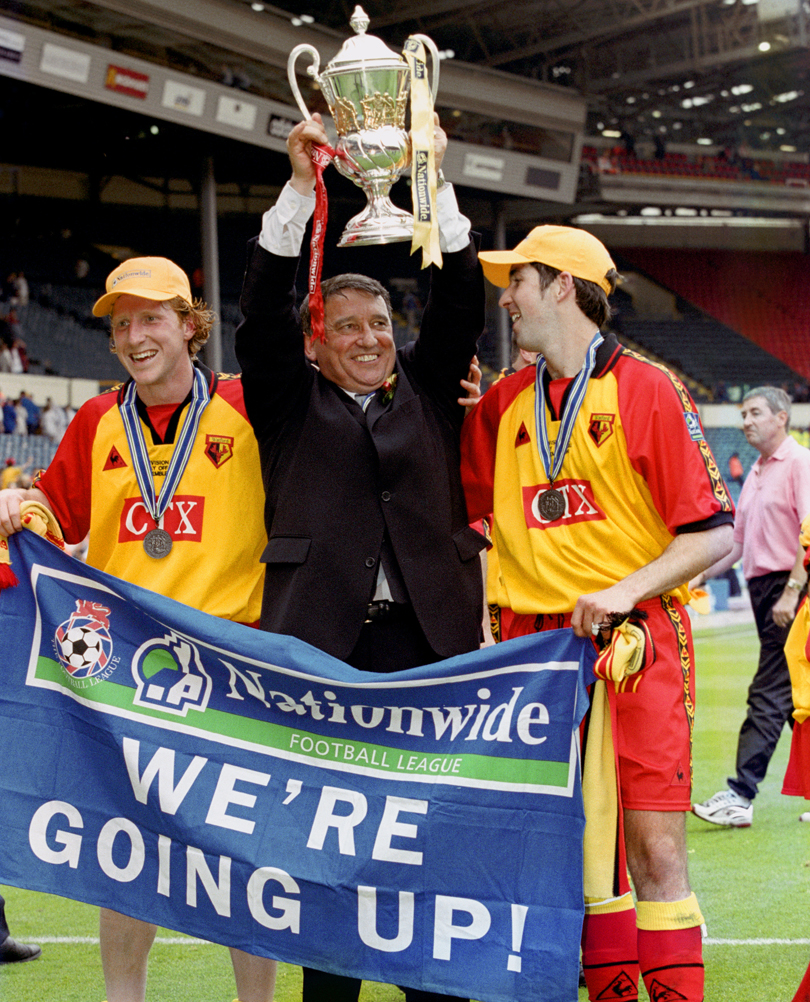
He explained how his cheerful determination dated right back to the start of his management career. While scouting Lincoln’s upcoming opponents, “there were five or six older ex-managers scouting for clubs,” he told FFT, “and the cynicism I heard from them made me vow to myself that if I stayed on in the game, I would never become like that. It’s been very hard, but I’ve just about managed it.”
Into the Hornets’ nest
Born in Worksop, Notts on September 15 1944, Taylor grew up in Scunthorpe: his dad was a sports journalist for the local paper. A right-footed left-back for Grimsby and Lincoln, he was invalided out of the game at 28 but was already a full staff coach at the FA and was made Lincoln’s manager. Four years later he led the Imps to the Fourth Division title, which caught the attention of the club with whom he would really make his name.
Get FourFourTwo Newsletter
The best features, fun and footballing quizzes, straight to your inbox every week.
Watford were in the Fourth Division but looking at the stars – one of whom, Elton John, was the chairman. The pop star had wanted Bobby Moore as manager but switched to Taylor after a glowing report from Don Revie. At the interview, John said he wanted to reach Europe, Taylor laughed it off by saying it’d cost a million pounds. “Right, let’s give it a go,” responded John.
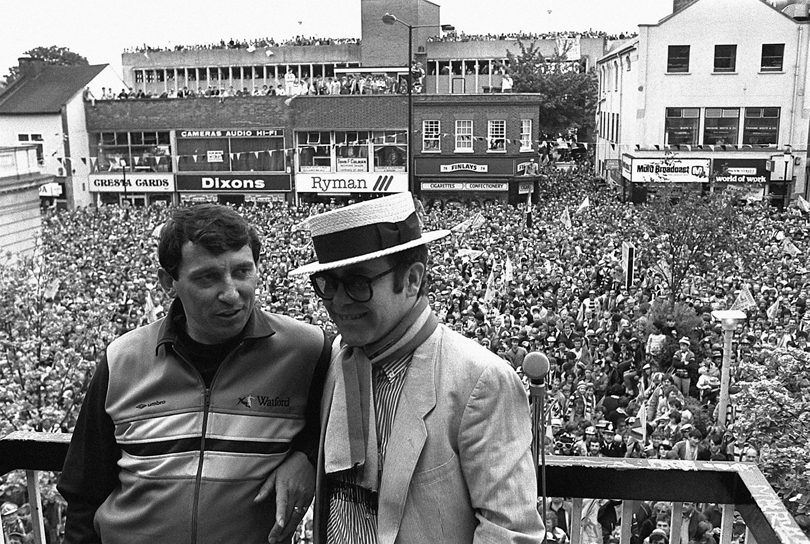
The chutzpah was enough to convince Taylor, who turned down First Division West Bromwich Albion to clamber aboard Elton John’s crazybus. They may have seemed polar opposites but John and Taylor dovetailed brilliantly, each man fizzing with ideas off and on the pitch but also with a joie de vivre which coursed through the club and into the local community. Five years later, Watford had streaked through three promotions and finished second in the top flight. A year later, they reached the FA Cup final.
At this point, Taylor’s Hornets are usually described as a long-ball team, as if the rest of English football was a sea of aesthetes playing proto-tiki-taka. True, Watford were muscular and they prioritised feeding their wingers to supply the centre-forwards, but so did at least 85 other league clubs at the time. Watford were just better at it.
This came partly through a crop of brilliant players. Centre-forward Luther Blissett top-scored in the top flight, bagging 27 league goals and eventually earning a move to Milan. John Barnes was a right-back’s nightmare. But every Watford player knew his role and helped the team transcend the sum of its parts. That victory is always the manager’s.
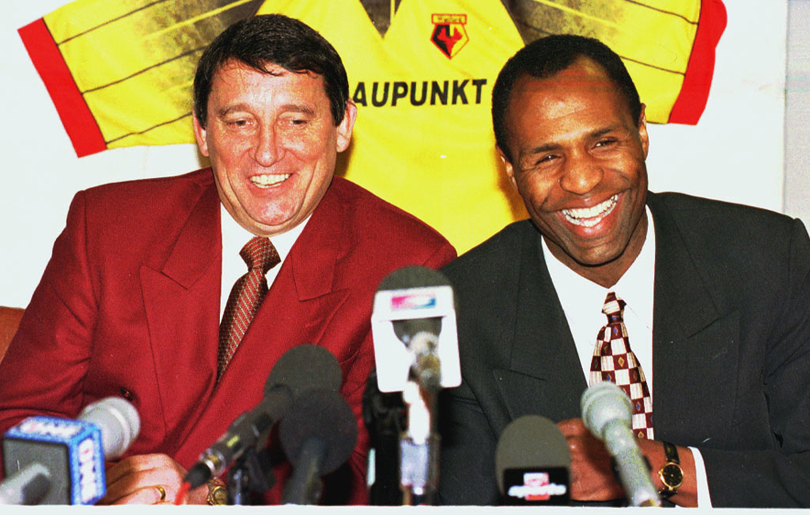
Villan and Villain
After a decade at Vicarage Road, Taylor took a step back with the aim of going two forward. In May 1987 he left Watford for Aston Villa, who had just been relegated five years after being champions of Europe. In 1988 he got them straight back up, in 1989 he kept them up, and in 1990 – using an innovative 3-4-3 formation – he led them to second place. That was enough to convince the FA that he was the man to replace Bobby Robson.
It was a sticky wicket. Brave defeats in the Mexico 86 quarter-final and Italia 90 semi gave an entirely false position of England’s relative strength in the world game – they had lost all three games at Euro 88 and hadn’t even reached Euro 84. Taylor also had to replace the retiring Peter Shilton, Terry Butcher and Bryan Robson, but still led England to Euro 92.
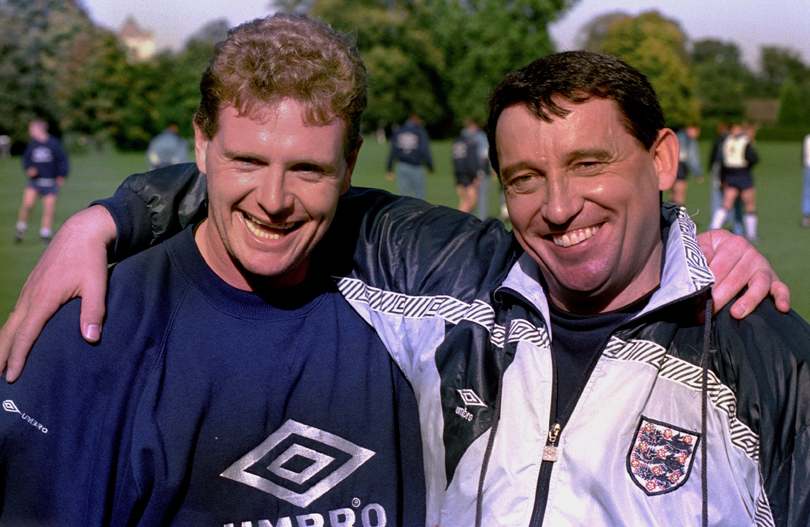
He might have wished he hadn’t when the side were held by Denmark and France, then allowed Sweden a come-from-behind win. That loss, the resultant elimination and Taylor’s bold but fruitless decision to substitute the ailing Gary Lineker prompted one tabloid to break out the Photoshop under the headline “Swedes 2 Turnips 1”.
Taylor was sanguine about the abuse: “I’m all in favour of freedom of the press,” he told FFT, “but it quickly turned into a personal attack on my character.”
The stuttering USA 94 qualifiers hinged on a game in the Netherlands in which Ronald Koeman, having somehow avoided a red card for a professional foul on David Platt, scored down the other end to send Taylor spinning into apoplexy.
Even then, this was a measured, somehow very English anger, its detail captured by the Impossible Job documentary. Taylor told FFT that “There are very few moments when you do properly lose it, and that was certainly one” – but his rage was summed up by his polite entreaties to the nearest linesman: “Will you tell your friend that he’s just cost me my job?”
Living with the ghost
Although Taylor resigned from the England job in November 1993, in some ways it never really left him. Wolves were the first team to take a chance on him, but that reign included an unsavoury incident in which a fan spat on him; Taylor’s response was to attempt a citizen’s arrest.
After that, he stuck to places he loved. With Elton John buying back Watford, he got the old band back together by appointing Taylor as general manager. Soon slipping back into the dugout, Taylor led them to the third-tier title and then immediately into the top flight via the play-offs.
This time he couldn’t keep them up, and retired in 2001 stating with admirable honesty that he had lost his powers of motivation. It didn’t stop having one last go with Aston Villa, and he retired as only the third to manage 1,000 games in English senior football.
His anecdotage included various honorary roles at Scunthorpe – it may just be coincidence that they had two promotions in three years while he was in the directors’ box – and Watford, where they named a stand after him. But he was also a bright radio pundit, the flat northern vowels of his accurate analyses punctuated with a regular warm “D’you see?”
Despite the almost-Shakespearean tribulations of his most famous role, Taylor never stopped being in love with football, and never stopped wanting other people to share that love. Promotion was the game, and he did that with a zeal that touched all who knew him.
Gary Parkinson is a freelance writer, editor, trainer, muso, singer, actor and coach. He spent 14 years at FourFourTwo as the Global Digital Editor and continues to regularly contribute to the magazine and website, including major features on Euro 96, Subbuteo, Robert Maxwell and the inside story of Liverpool's 1990 title win. He is also a Bolton Wanderers fan.
